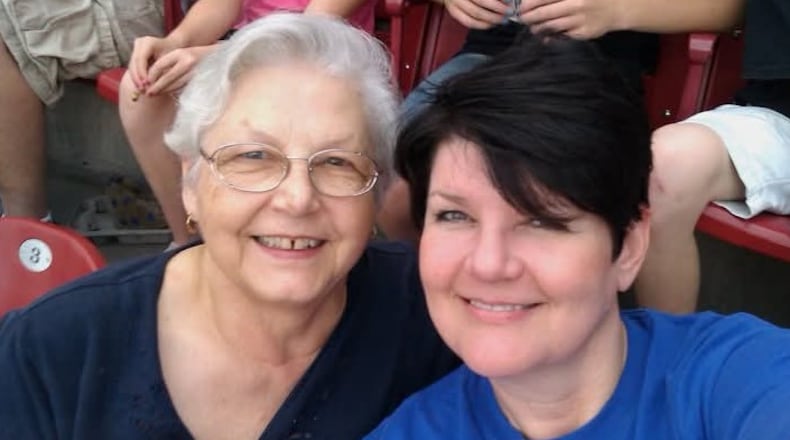Sher Patrick-Hauser has seen her mother struggle in the last few years. Frieda Patrick spent many years as a caregiver for her husband, Earl, who died in August. While Earl Patrick received palliative care from Hospice of Dayton in the last year of his life, Frieda Patrick served as his main caregiver to uphold a promise that she would not “put him in a home”.
“Seniors face so many issues and I think one of the biggest is not adequately preparing for retirement,” Patrick-Hauser said. “It’s hard to save for a time in the distant future, but time passes quickly. One day you are raising children and the next you are facing life on a limited income and wishing you could do more for your family.”
Frieda Patrick, 89, put her own health needs aside to care for her husband, and now a much-needed surgery for a knee replacement and shoulder replacement is not an option due to heart issues.
“Her knee is bad enough now that we are concerned that she will not be able to walk or get around,” Patrick-Hauser said. “She is on the brink of needing more care than I might be physically capable of providing.”
Patrick-Hauser, 66, said she grew up in a loving family that didn’t discuss money, and she is concerned about finances if her mother needs nursing home care. She notes that a nursing home could “easily cost $150,000 and would quickly wipe out all that my parents’ worked a lifetime to build.”
“I am worried that if I can’t take care of Mom and she ends up in a nursing home, Medicaid will eventually take our family home and all mom’s remaining assets after she dies,” she said. “It’s heart ravaging enough to lose a parent, but to lose any inheritance that might have been available to my children and me...that’s bitter.”
Earl and Frieda Patrick thought they were well prepared for the future with a will, power of attorney designation and a living will.
“They didn’t realize there were other important options out there for them, and that it wasn’t too late to do more.”
Patrick-Hauser is determined to learn and do better for herself and her children. She wishes that she and her parents had known more about Medicaid eligibility, estate planning and long-term care insurance. Her current plan is to preplan and prepay for her own funeral, create an estate plan and also purchase long-term care insurance for herself.
“I think everyone needs to educate themselves on money issues, investment strategies, preserving assets and estate planning,” Patrick-Hauser said. “People can self-educate to a point and then it becomes prudent to involve a professional who has spent their life learning about these important issues. If you have enough money for a savings account, you need to know more about financial matters.”
She also notes that everyone ages and at some point, must let go of their independence.
“I want to plan for my care at the end of my life, so my kids don’t have to be my fulltime caregivers. I don’t want that stress for them because caregiving is hard, physical, and specialized work.”
Patrick-Hauser encourages others to research and work with an expert to finalize plans.
“The payoff for good estate planning is knowing you have protected what you possess to the greatest extent possible, and left it to your loved ones for them to use or build on after you are gone,” she said. “It’s part of your legacy. And it’s comforting to know you exercised some control over how you will spend your final days in life.”
About the Author


